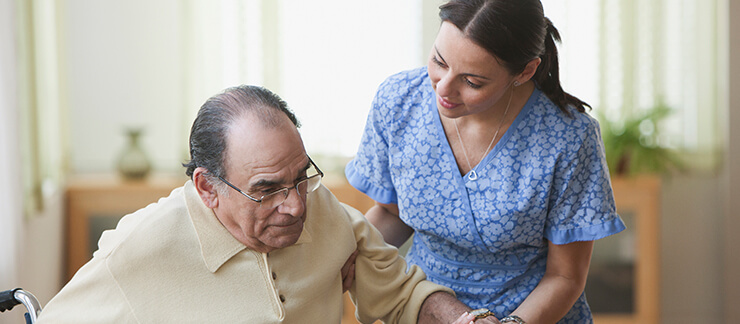The Best Way to Avoid Elderly Hospital Readmission
Nearly 20 percent of Medicare patients discharged from a hospital are readmitted within 30 days. That's nearly 26 million seniors going back to the hospital after initial admission, annually.
If your aging loved one has recently been admitted to the hospital, preventing readmission should be among your top priorities. And while there's a lot of good advice on how to do that, there's one strategy that incorporates all the best practices.
It’s called a care plan, and it’s very effective.
Why a Care Plan Is Critical
A care plan is a road map of care, connecting medical professionals, family and a loved one’s professional and family caregivers. Its flexible nature allows for a seamless transition as the needs of your loved one change.
The most important detail about a care plan is that it’s a living document. It’s unique because it stands to evolve alongside the needs of your senior loved one. It’s effective because it coordinates care across numerous people, distances and mediums.
A common reason for hospital admission among the elderly is medication error. Whether it's taking the wrong dose or missing a dose entirely, medication error can quickly lead to hospital admission, a high price to pay for what could've easily been avoided.
Per that same NEHI study, a lack of follow-up care is just as disruptive to the healing process. It’s not uncommon for the elderly to forget follow-up dates or avoid them because of cost or an unwillingness to travel.
But follow-ups provide vital information. It’s an opportunity for your loved one to have face time with a doctor who can thoroughly explain conditions and symptoms. They can discuss test results or explore other medical issues or concerns.
A care plan is your first line of defense in preventing medication errors and missed appointments and follow-ups.
Care Plans Can Help Prevent Falling
Falling is another major factor in hospital readmissions among the elderly. In fact, over one-third of older adults with minor head trauma caused by a fall will return to the emergency room within 90 days after discharge, per a study published in the Journal of the American Geriatric Society.
Readmission due to a fall is an excellent opportunity to reassess your loved one's needs, but it's a costly time to do it. Instead, ensure a professional care plan properly choreographs your Mom or Dad’s care.
If you're unsure of how to create a care plan, a professional caregiver can be an exceptional resource. Professional caregivers are not medical professionals but are compassionate professionals trained to help elderly adults remain comfortable within their home and age with dignity.
Some agencies offer professional caregivers certified in certain types of care like dementia, or even fall-proofing a home. They're arguably the most efficient way to enforce your loved one’s care plan. Short of someone in your family or close to your family assuming this role full-time, a professional caregiver can go a long way in preventing hospital readmissions.
But if a professional caregiver isn’t a realistic option at this point, you must ensure your senior loved one has a living care plan. Get more information on making a care plan by clicking here.













